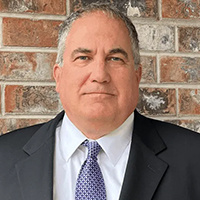Pleasant Grove White Collar Crime Lawyer, Utah
Sponsored Law Firm
-
 x
x

Click For More Info:
-
Greg Smith and Associates
7324 Union Park Ave Suite 101 Midvale, UT 84047» view mapCriminal Defense Proudly Serving The State of Utah
We've successfully resolved thousands of criminal defense and other cases, and we can take your call now!
800-925-8751
Dave Clark
✓ VERIFIEDCriminal, Traffic, DUI-DWI, Misdemeanor, White Collar Crime
I went to law school just to be a criminal lawyer. I served as a prosecutor for almost 30 years, but defense law was always my true passion. I'm a nat... (more)
FREE CONSULTATION
CONTACTDavid Paul White
Civil Rights, Constitutional Law, Traffic, White Collar Crime
Status: In Good Standing
FREE CONSULTATION
CONTACTJ. Christopher Keen
Visa, Family Law, White Collar Crime, Collection
Status: In Good Standing Licensed: 22 Years
Tyler Ayres
Traffic, White Collar Crime, DUI-DWI, Criminal
Status: In Good Standing Licensed: 23 Years
Steven DuBreuil
Traffic, White Collar Crime, DUI-DWI, Criminal
Status: In Good Standing Licensed: 15 Years
Christopher Ault
Contract, Collection, Wrongful Death, White Collar Crime, Family Law
Status: In Good Standing Licensed: 18 Years
Robin Michelle Ambrose
Collection, Elder Law, White Collar Crime, Family Law
Status: In Good Standing Licensed: 20 Years
Thomas L Mclelland
Traffic, White Collar Crime, Domestic Violence & Neglect, DUI-DWI
Status: In Good Standing Licensed: 16 Years
 Gregory Smith Midvale, UT
Gregory Smith Midvale, UT AboutGreg Smith and Associates
AboutGreg Smith and Associates Practice AreasExpertise
Practice AreasExpertise

